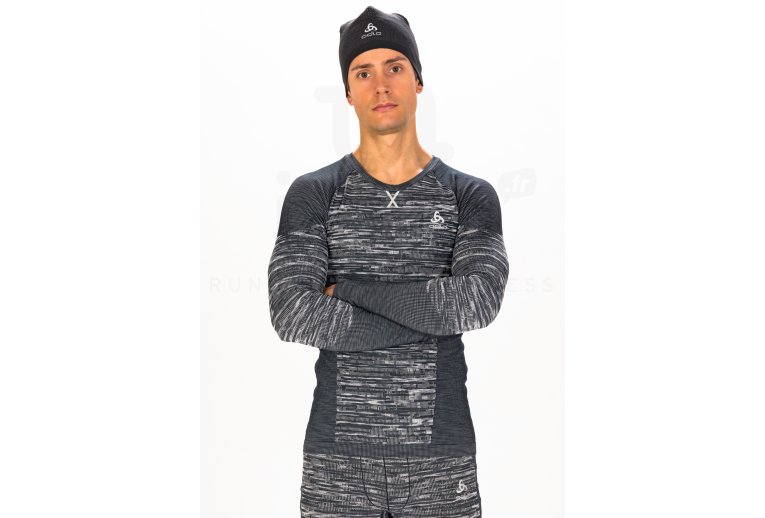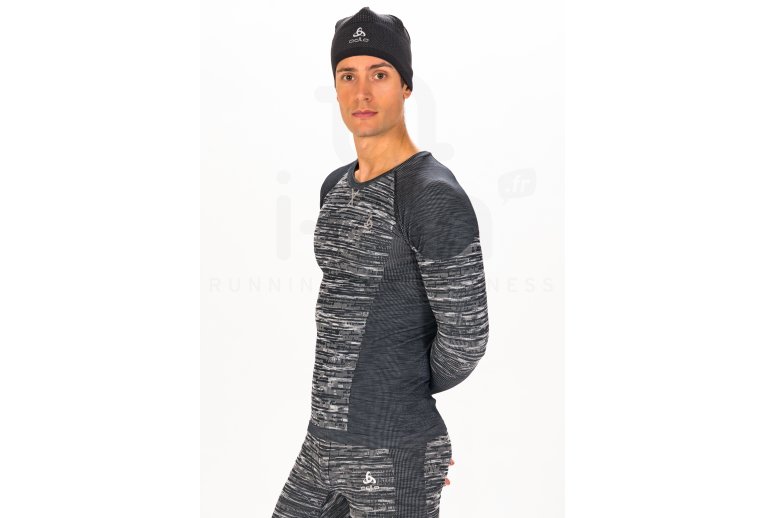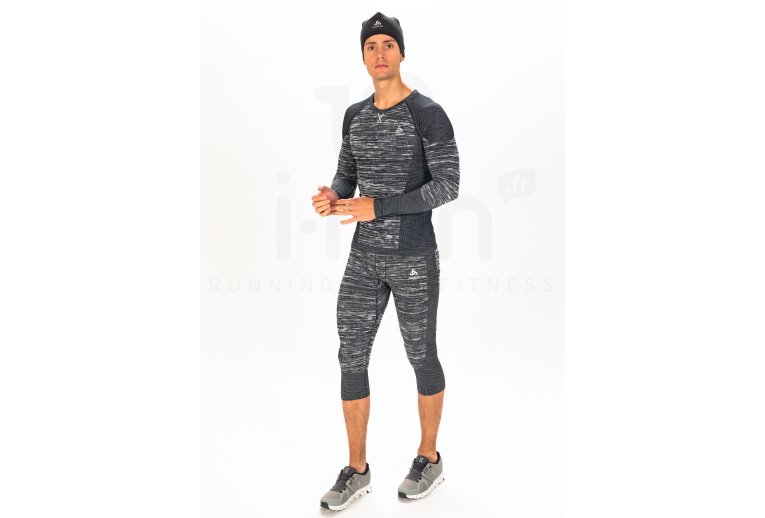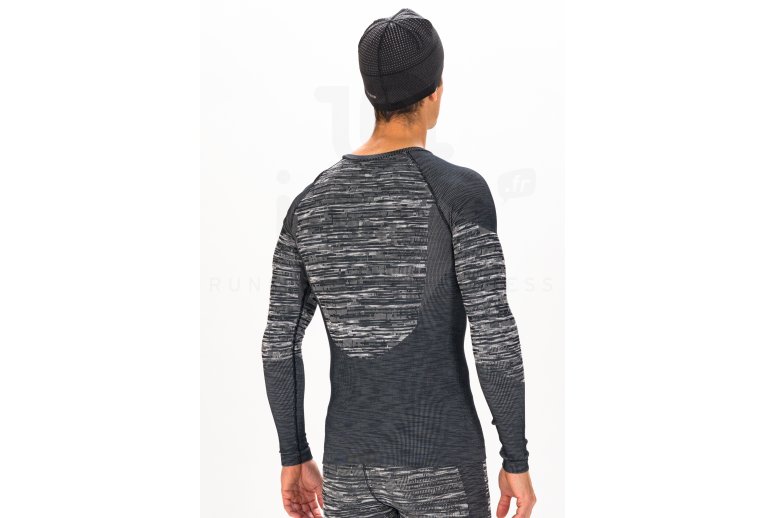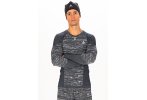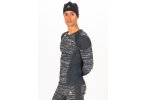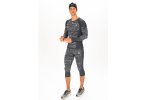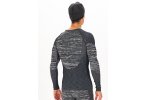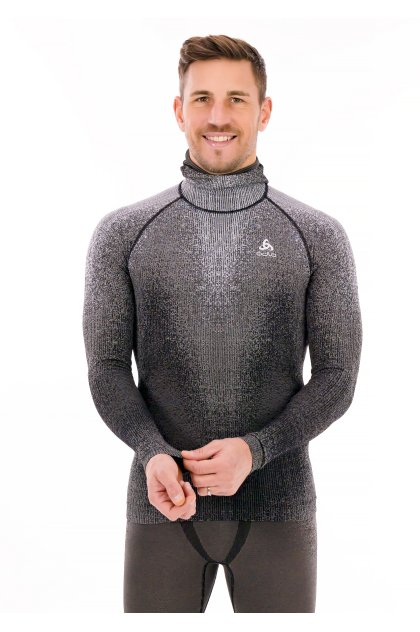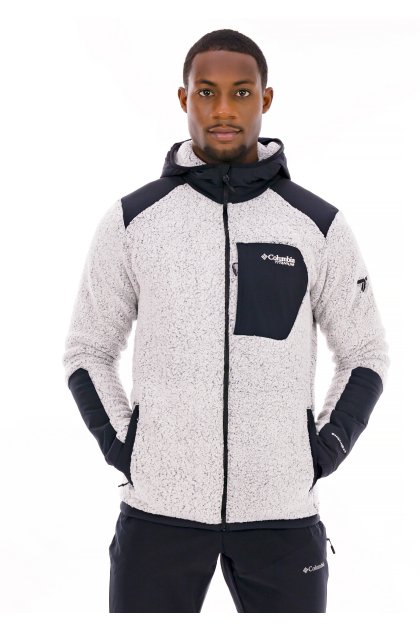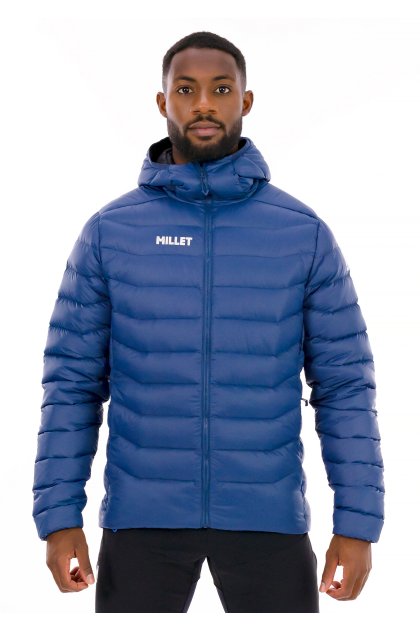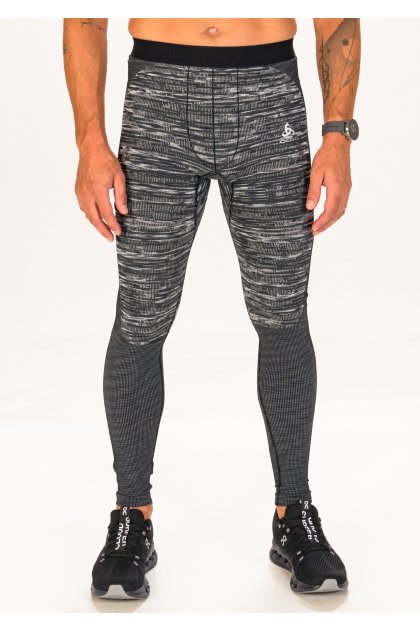The i-Run team says
The Odlo Blackcomb ECO long-sleeve shirt is ideal for performing with peace of mind during your winter sports sessions.
The Warm range guarantees optimal thermal insulation as well as constant dryness.
Its seamless design follows the contours of your body for exemplary freedom of movement.
Eco-friendly, this model is made from recycled materials.
Our model Damien is 1.81m tall and wears a size M.
Key features of the Odlo Blackcomb ECO long-sleeve shirt
- Warm range: thermal insulation, warmth, and sweat-wicking
- ZeroScent: anti-odor
- Seamless: comfort
- Bodymapping: comfort and freedom of movement
- Stretch material: ease
- ECO: made with recycled materials
- Reflective details: visibility
- Colors: black, white, and gray
Technologies
-
Gamme Warm
Highly functional sports underwear with excellent thermal insulation. Perfect for all winter activities. Keeps the skin dry and warm while providing good moisture transfer.
-
Body Mapping
Concept combining freedom of movement, ventilation, and support.
-
Oeko-Tex
Odlo's functional underwear bears the "Confidence in Textiles" label from Oeko-Texģ, certifying that the textiles have been tested for harmful substances in accordance with the Oeko-Tex Standard 100. The products meet current human-ecological requirements: no carcinogenic substances, no formaldehyde, no dyes likely to cause allergies, and skin-friendly pH levels.
-
ZeroScent
Sustainable anti-odor technology that reduces unpleasant smells.
-
Fair Wear
ODLO is a member, with a leader status, of the Fair Wear Foundation (FWF), which strives to improve working conditions in the textile industry worldwide. The FWF verifies that producers adhere to their code of conduct and implement necessary improvements. As a multi-stakeholder initiative, the independence of the FWF is guaranteed as it is governed by trade unions, NGOs, and business associations. Transparency and accountability are key principles of the organization.
FWF members work to improve working conditions in factories that produce sewn textiles globally. The basis of the collaboration between the FWF and its members is its code of labor practices. Eight labor standards form the core of this code of conduct. FWF members are contractually obligated to adhere to these standards.
The FWF verifies whether companies comply with the code of labor practices through factory audits and complaint procedures, audits of its members' management systems, and extensive stakeholder consultations in producing countries. The FWF shares its knowledge and (local) contacts with its member companies, giving them access to information on local legislation, labor laws, and culture.
Members are required to establish an effective control system, including factory audits, in-factory training, and factory visits. The FWF has a complaint procedure that allows factory workers to anonymously report any abuse related to working conditions. To raise awareness among workers about labor rights, the FWF also offers a workplace education program.
